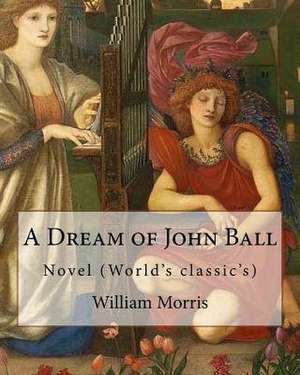A Dream of John Ball . by
Autor William Morris, Edward Burne-Jonesen Limba Engleză Paperback
Preț: 50.25 lei
Nou
Puncte Express: 75
Preț estimativ în valută:
9.62€ • 10.07$ • 7.96£
9.62€ • 10.07$ • 7.96£
Carte disponibilă
Livrare economică 15-29 martie
Preluare comenzi: 021 569.72.76
Specificații
ISBN-13: 9781540676566
ISBN-10: 1540676560
Pagini: 54
Dimensiuni: 203 x 254 x 3 mm
Greutate: 0.13 kg
ISBN-10: 1540676560
Pagini: 54
Dimensiuni: 203 x 254 x 3 mm
Greutate: 0.13 kg
